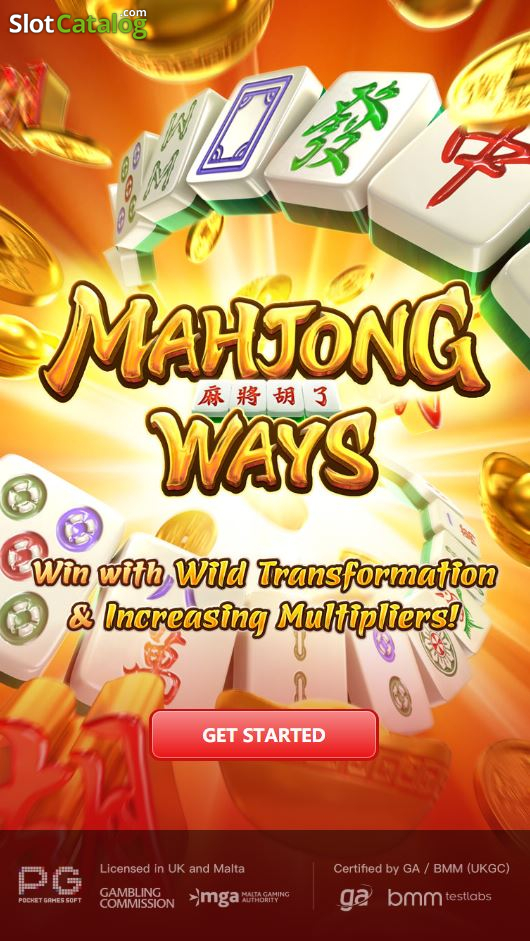Mahjong Ways is captivating the attention of players around the globe, particularly in Western nations where its popularity has surged. This traditional game, rich in history and cultural significance, is not just a leisurely pastime; it offers numerous Mahjong benefits, including improved cognitive skills and social interactions. As communities embrace the game, they’re discovering how Mahjong can foster relationships through friendly competition and strategic collaboration. Local events now serve as fantastic opportunities for players of all backgrounds to come together, reinforcing the game’s role in promoting social well-being. Join us as we delve deeper into Mahjong Ways and explore its thriving community, strategies, and the reasons behind its growing appeal.
The allure of Mahjong transcends geographical boundaries, drawing enthusiasts to engage in this tile-based game revitalized within modern settings. Often referred to as a blend of strategy and chance, this captivating pastime not only entertains but also nurtures social bonds and mental agility. The game’s rising prominence in the West marks a significant cultural adaptation, revealing how local communities have embraced it as a means to enhance leisure activities and social interaction. With increasing participation in Mahjong events, the game has become a cornerstone for many, connecting diverse groups through shared experiences of gameplay. Let’s uncover the fascinating dimensions of this game and its impact on strengthening community ties and enriching lives.
Exploring the Benefits of Playing Mahjong
Playing Mahjong is not just about having fun; it comes with a myriad of mental health benefits that engage players on multiple cognitive levels. Regular participation in Mahjong can enhance mental agility, improve memory, and foster strategic thinking. The game necessitates concentration and thoughtful decision-making, which stimulates brain activity and can serve as a delightful workout for one’s mind. Whether playing in a relaxed home setting or at community events like the ones hosted at Baba’s House, players find themselves sharpening their cognitive skills while enjoying a rich social experience.
Moreover, the community aspect of playing Mahjong cannot be overlooked. It brings people of various backgrounds together, creating a sense of belonging and camaraderie. Many players report that regular Mahjong sessions become a vital part of their social calendars, offering an opportunity to unwind, connect, and build lasting friendships. As Mahjong continues its rise in popularity across the West, it is enabling players to tap into the mental health benefits while also making meaningful connections within their communities.
The Growing Popularity of Mahjong in the West
The growing trend of Mahjong in Western cultures is fascinating to observe. Traditionally viewed as a game primarily enjoyed within Asian communities, Mahjong’s appeal has surged among diverse groups, especially the younger generation, who crave both competition and camaraderie. Modern adaptations and digital platforms have played a key role in enhancing accessibility, allowing newcomers to grasp the gameplay easily through interactive mobile applications like ‘Mahjong Escape.’ Such innovations highlight the intersection of technology and tradition, making Mahjong relevant and exciting to modern audiences.
Community events are also flourishing as dedicated spaces for Mahjong enthusiasts to gather and share experiences. These gatherings showcase not only the game’s strategic components but also its potential to foster community bonds among diverse players. With the rise of organized Mahjong nights, venues are creating environments where friendships can blossom and cultural narratives can intertwine, making Mahjong a vital player in promoting social engagement in contemporary society.
Frequently Asked Questions
What are the mental health benefits of playing Mahjong Ways?
Playing Mahjong Ways offers numerous mental health benefits, including improved cognitive skills, enhanced memory, and better problem-solving abilities. Engaging in this strategic game sharpens concentration and stimulates brain activity, making it not just a fun pastime but also a beneficial workout for the mind. Regular players often find that their focus and mental clarity increase, contributing to overall mental wellness.
How has Mahjong Ways become popular in Western communities?
Mahjong Ways has gained significant traction in Western communities due to its ability to promote social interaction and community bonding. As more people seek enjoyable social activities, Mahjong nights organized in community centers are helping to foster connections among players from diverse backgrounds. This cultural integration highlights Mahjong’s role as a tool for building community ties while engaging in a competitive yet friendly atmosphere.
| Key Points | Details |
|---|---|
| What is Mahjong? | A tile-based game originating from China, played with 144 tiles; combines skill, strategy, and luck. |
| The Rise of Mahjong in the West | Increased popularity among younger demographics promoting social activities and community events. |
| Mental Benefits of Playing Mahjong | Enhances cognitive skills, memory, and problem-solving abilities, promoting mental wellness. |
| Role of Technology | Modern adaptations like mobile games blend traditional gameplay with cultural storytelling. |
| Community Efforts | Initiatives like Baba’s House promote Mahjong as a means for social cohesion and cultural exchange. |
| Cultural Significance | Mahjong integrates into modern social activities, connecting people through shared experiences. |
Summary
Mahjong Ways serves as a testament to the transformative power of traditional games in contemporary life. As Mahjong continues to captivate a global audience, it eloquently showcases the unique blend of community engagement, mental health improvement, and cultural appreciation. Through communal gatherings and digital adaptations, Mahjong fosters connections among diverse individuals, proving itself to be more than just a game. Instead, it is a bridge that unites players in shared experiences, creating communities built on camaraderie and tradition. Join the movement of Mahjong enthusiasts and immerse yourself in the rich tapestry of connections that this timeless game offers.
